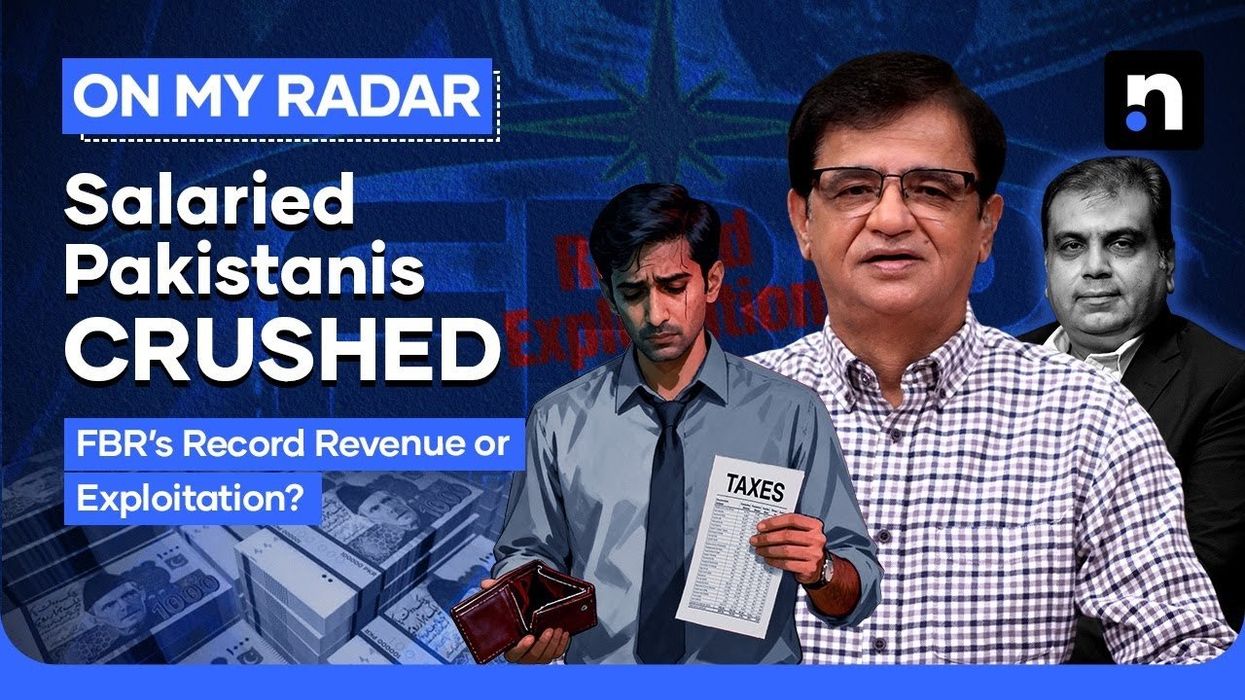FBR’s ‘record success’ built on squeezing salaried class, not expanding tax net
Kamran Khan says Pakistan’s tax rise reflects workers’ sacrifice, not FBR efficiency
News Desk
The News Desk provides timely and factual coverage of national and international events, with an emphasis on accuracy and clarity.
Kamran Khan says Pakistan’s Federal Board of Revenue (FBR) has mastered the art of making noise instead of expanding the country’s tax net.
In his latest episode of “On My Radar,” Kamran Khan criticized FBR Chairman Rashid Mahmood Langrial for presenting Pakistan’s tax performance as a “global case study” during meetings with the World Bank and IMF in Washington.
Langrial claimed that Pakistan’s tax-to-GDP ratio had jumped from 8.83% in 2023–24 to 10.33% this year, breaking a 23-year record. But according to Khan, this so-called success story wasn’t the result of structural reform or new taxpayers—it came from squeezing those already in the system, particularly the salaried class.
“Pakistan’s salaried workers have quietly borne the cost of this so-called tax revolution,” Khan said, adding that over the past four years, the tax burden on employees has nearly tripled.
In tax year 2022, the salaried class paid PKR 189 billion in income tax. By last year, that figure had surged to PKR 553 billion. Conservative estimates show that this year, collections from salaries could hit PKR 700 billion.
From July to September 2025 alone, salaried workers contributed PKR 130 billion to the national treasury—equal to the total paid by the country’s retailers, wholesalers, exporters, and real estate businesses combined.
Property transactions brought in PKR 60 billion in taxes, exporters paid PKR 45 billion, wholesalers PKR 14 billion, and retailers just PKR 11 billion. “The same PKR 130 billion that FBR extracted from millions of salaried employees before their paychecks even reached them,” Khan noted.
He said that while the IMF has urged Pakistan to widen its tax base and bring untaxed sectors into the net, the government continues to target fixed-income earners first.
Among the worst affected, Khan explained, are professionals in the upper income slab, who pay up to 35% in income tax. The 2025 budget lowered the threshold for this rate from PKR 625,000 to PKR 340,000 per month—pushing even middle-income professionals into the highest tax bracket.
“This policy disproportionately punishes educated and skilled Pakistanis,” he said, warning that the growing tax squeeze is fueling brain drain. “Nearly half their income is lost to direct and indirect taxes. Many are choosing to leave the country.”
Khan argued that the FBR’s 10.33% tax-to-GDP ratio isn’t a policy triumph but a reflection of the “silent sacrifice” of salaried citizens.
He also accused the FBR of using distractions to mask its failures—announcing new recovery drives, threatening non-filers with power and gas disconnections, or launching flashy apps and schemes that rarely deliver results.
“From promising PKR 2.7 trillion in recoveries to threatening to block SIM cards, FBR’s record is full of gimmicks,” Khan said. “Its real expertise lies in creating stories and hype, not expanding the tax base.”
He concluded that despite the FBR’s global praise, the agency is facing a PKR 200 billion shortfall in collections this fiscal year.











Comments
See what people are discussing